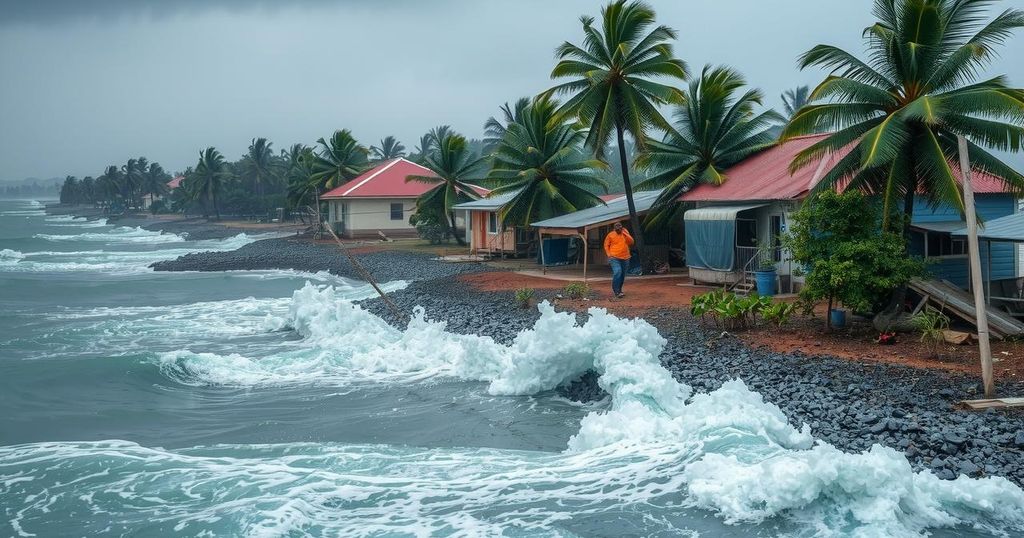Tropical Cyclone Chido: Emergency Response and Preparedness in Mozambique

Tropical Cyclone Chido struck Cabo Delgado on December 15, 2024, endangering approximately two million individuals, including 627,000 at high risk. Early warnings were disseminated, and emergency food aid has reached many families in temporary shelters, signifying efficient response efforts and proactive measures to mitigate the cyclone’s impact.
On December 15, 2024, Tropical Cyclone Chido made landfall in the Mecufi district of Cabo Delgado province, Mozambique, posing significant risks to the population. An estimated two million individuals have been identified as potentially affected by the cyclone’s impact, which includes approximately 627,000 individuals classified as high risk and an additional 1.4 million at moderate risk. Reports from government meteorological services indicate that the cyclone may adversely affect river basins, transportation routes, electricity infrastructure, and healthcare facilities, demanding immediate protective measures and response strategies.
The districts facing the gravest threats include Mecufi, Chiure, Metuge, Pemba, Namuno, Montepuez, and Ancuabe of Cabo Delgado, alongside Memba, Nacaroa, and Erati in Nampula province. To mitigate risks and enhance preparedness, early warning messages began circulating on December 8 in Nampula and December 12 in Pemba. These efforts reached over 400,000 residents in the affected districts, marking the activation of the Anticipatory Action Plan.
Within 24 hours following the landfall, the World Food Programme (WFP) successfully delivered emergency food assistance to approximately 500 families located in temporary accommodation centers in Pemba. Furthermore, similar support was extended to temporary shelters in Mogincual, Nampula, under the activation of the Anticipatory Action Plan in collaboration with the National Institute for Disaster Management (INGD). Comprehensive multi-sectoral assessments are scheduled for the Mecufi and Chiure districts to accurately gauge the cyclone’s impact and inform future interventions.
Tropical cyclones are significant natural disasters that frequently affect coastal regions, particularly in Mozambique. The country faces a recurring risk due to its geographical location and vulnerability to climatic phenomena. In December 2024, the emergence of Tropical Cyclone Chido necessitated emergency response measures as millions of individuals found themselves at varying levels of risk. This situation underscores the importance of preparedness, timely communication, and coordinated humanitarian efforts to alleviate the potential impacts of such disasters on affected communities.
In conclusion, the landfall of Tropical Cyclone Chido in Mozambique has created an urgent situation affecting millions. With enhanced preparedness efforts, early warning systems, and food assistance initiatives already in action, the support from governmental and humanitarian organizations is critical. Furthermore, continued assessments will be essential for effective management and response to the needs arising from this disaster. Ensuring the safety and well-being of the affected populations remains a top priority.
Original Source: reliefweb.int








